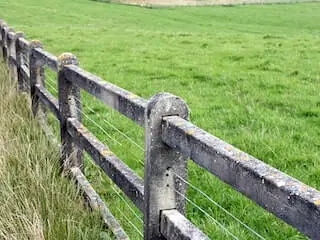‘The grass is always greener on the other side of the fence’ expresses the idea that other people’s situations always seem better than one’s own. The proverb carries an implied warning that, in reality, the grass is equally green on one’s own side and that you should be satisfied with what you have.
The grass is always greener on the other side of the fence
What's the meaning of the phrase 'The grass is always greener on the other side of the fence'?
What's the origin of the phrase 'The grass is always greener on the other side of the fence'?
‘The grass is always greener on the other side of the fence’ or, as it is often shortened ‘the grass is always greener…’ is an early 20th century proverbial saying. However, there are variants of it, which express exactly the same sentiment, from the late 19th century.
The earliest example of the proverb in the ‘other side of the fence’ form that is now almost always used is from the US newspaper The Kansas Farmer, February 1917:
Some people are never satisfied anywhere. The grass always looks a little greener on the other side of the fence.
The notion of ‘greener grass’ being a metaphor for new experience had been in use for some time before this proverb was coined, as in this example from The New York Times, June 1853:
It bewitched your correspondent with a desire to see greener grass and set foot on fresher fields.
Earlier variants exists, both in the UK and the USA, which are effectively the same phrase, as in this example from the Pennsylvania newspaper The Public Press, August 1897:
The [Klondyke gold] mines are wonderful, but probably not so wonderful as represented. Grass is always greener, you know, further away.
The fact that the above example is a metaphorical usage, that is, one in which the subject is minefields rather than grass, suggests that the expression was already in widespread use by 1897 and may be much earlier in origin.
See also: the List of Proverbs.
Related phrases and meanings
Browse more Phrases
About the Author

Phrases & Meanings
A-Z
A B C D E F G H I J K L M N O P Q R S T UV W XYZ
Categories
American Animals Australian Bible Body Colour Conflict Death Devil Dogs Emotions Euphemism Family Fashion Food French Horses ‘Jack’ Luck Money Military Music Names Nature Nautical Numbers Politics Religion Shakespeare Stupidity Entertainment Weather Women Work
How did we do?
Have you spotted something that needs updated on this page? We review all feedback we receive to ensure that we provide the most accurate and up to date information on phrases.
